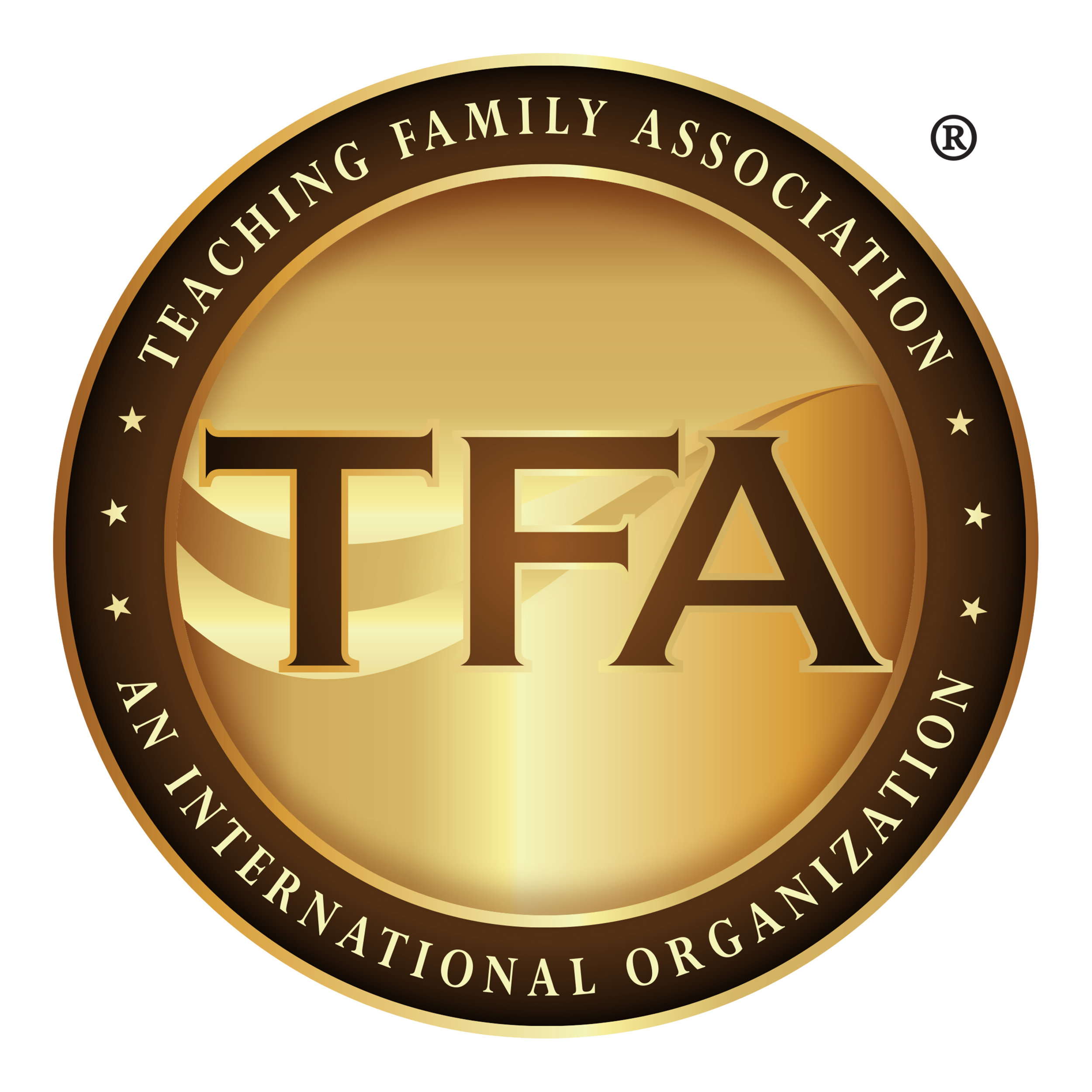program applications
The Teaching-Family Model is largely a mentoring model. It can be implemented in just about any environment and effective on any population. The TFM is used in a variety of environments. In fact, the Model is so flexible it can be applied in nearly all treatment settings. Evidence is consistent across all program types and with all populations.
“We are so grateful for Teaching family Model skills…everyone knows what is expected of them and it makes parenting easier and more enjoyable. The kids like the consistency. we teach the skills to every new child who comes into our home.”
Crown Point Foster Parent, Josiah White’s Residential and Family Services
Family Homes
Group home programs offer campus-based and community-based residential programs for children, adolescents, or dependent adults in a family-like setting. Delivery of treatment is carried out by a well-trained treatment team. TFM practitioners (staff working together in any staffing pattern that promotes consistency and trauma-informed care) provide services in family-style environments, using precise, trauma-informed intervention strategies to create daily opportunities for emotional, relational, and social skills learning. This provides the client and their families the opportunity to learn, develop, and practice the skills needed to successfully live in the community, achieve at school, and to be able to return home to their families.
Treatment Foster Care
Foster care programs serve children and adolescents in need of supportive, treatment-oriented family environments that promote healing and skill learning. Programs are characterized by their commitment to marshal the resources, expertise, and support necessary to maintain each individual’s placement and to assure continuing goal attainment. Treatment Foster Parents are supported in a variety of ways including ongoing training, support groups, respite care, and 24-hour-a-day consultation services.
Home-based Treatment
Home-based family support programs offer intensive, short-term intervention for children and families within the context of their home, school, and community. Home-based treatment is family-centered, builds on existing family strengths, and focuses on developing a collegial partnership with parents. It is characterized by the belief that children and families belong together and features a strong commitment to preserving, maintaining, and reunifying the family unit. Family Specialists use Model elements sensitively and respectfully as they partner with families to improve family functioning and meet the family’s treatment goals.
School-based Programs
Programs offered in an educational setting specialize in providing interventions and behavioral support for children and adolescents who have been unsuccessful in traditional classroom environments. Services are centered on empowering educators to recognize and respond to at-risk students using proven Model techniques to promote school success. The Model demonstrates research-based efficacy in regular education classrooms, self-contained classrooms for special needs students, and Mental Health Day Treatment programs.
Mental Health & Community-based Programs
Programs in this application include, but are not limited to, psychiatric in-patient settings, short-term crisis/emergency placements, outpatient clinics, and other clinical environments. Treatment in this environment is focused on intensive therapeutic interventions designed to effect behavioral change relevant to specific mental health disorders. Practitioners are trained in Model philosophy and practice as a partner to other clinical methodologies. Additional community-based programs include, but are not limited to, housing, homelessness, emergency shelters for individuals of all ages and families, jail diversion, job/skill training, and more.
Adults with Developmental Disabilities
Programs offered for adults with severe intellectual and physical impairment are based in the community with a live-in TFM practitioner. Services are person-centered and support the individual to function to their full potential in the community, work placements, and in their homes. Service features individualized daily schedules, positive behavioral supports, a focus on self-determination, and a well-trained staff of Family Teachers who are encouraged to build lasting, positive relationships with the people they serve.







